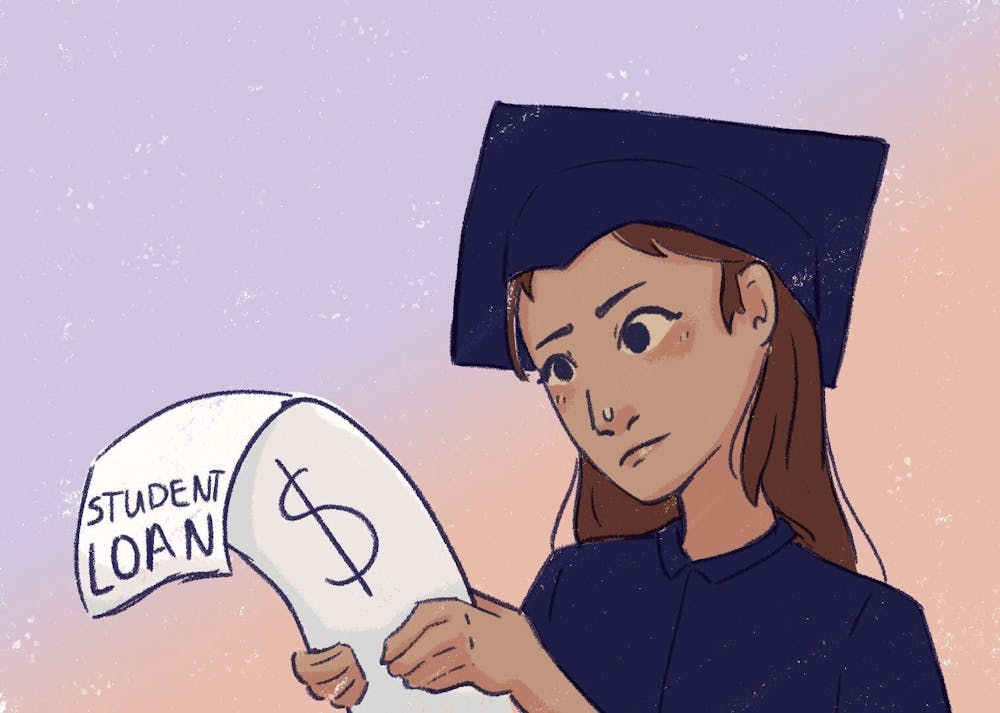The Biden-Harris administration's student debt relief plan continues to bounce in and out of courts around the country as critics question if the program is "fair." After taking a closer look at who this program affects and how it will work, it is clear the student loan debt relief program is an important step toward increasing access to higher education and providing resources for lower-income students.
Although the program seems to be an intuitively constructive resource, it has faced major backlash. In September, after the executive order was announced, Arizona Attorney General Mark Brnovich filed a lawsuit against the Biden administration claiming the order was "unconstitutional" and "fundamentally unfair."
READ MORE: AG Mark Brnovich files lawsuit to block federal student loan cancellation
On Thursday, a Texas federal judge struck down the forgiveness plan, writing in a 26-page opinion it did not go through the proper regulatory processes. The Biden administration can appeal the ruling.
For some reason, it is hard for certain lawmakers to comprehend helping the generation after they gain more resources and assistance than they had.
Georgia's Republican congresswoman Marjorie Taylor Greene is one of the strong opponents of the program, and has called the plan "completely unfair," as she believes that taxpayers will have to cover the costs of students who "piled up massive debt going to some ivy league school."
What these lawmakers do not have in mind is the excessive costs for low-income students, even at public universities like ASU.
Fourth-year nursing student and Pell Grant recipient Gabi Campbell said she took out $26,000 worth of loans, even with financial aid and scholarships. The Biden administration's debt relief program will help alleviate the stress that can accompany taking out these loans.
"I was always nervous that when I graduate, I will solely be working to pay off my loans, but now I really no longer have that fear," Campbell said.
She also discussed how the loan forgiveness plan affects her differently as a Pell Grant recipient, as the plan grants more relief for students in more financial need. The Pell Grant awards aid to undergraduate students with significant financial aid needs while they complete their first bachelor's degree.
"I think this will be a great thing for students, and (I) hope college will become more accessible to low-income students," Campbell said.
As the cost of four-year college has tripled in the past 40 years, the maximum amount of Pell Grant values has stayed relatively the same since 1980. Higher education, in this sense, is becoming increasingly inaccessible to low-income students.
Loan forgiveness can help level the playing field so that higher education is not just for those who grew up wealthy.
Many other countries, including Canada, Sweden, England and Germany offer some form of debt relief and/or tuition-free college for all residents. Even in countries like France, where students do pay tuition, the costs are significantly less than that of American students, allowing many French students to graduate debt-free. This also leads to people of different economic backgrounds holding university degrees.
There is no downside to having a more educated, well-rounded populace by maximizing the number of citizens able to attend higher education. The student debt relief plan is a great first step in working towards assisting those who would like the opportunity for higher education.
According to a CNBC report, more than 80% of student loan borrowers ages 22 to 35 in the U.S. state their educational loans as the reason they have not bought a house yet.
In addition to this, student loan debt can cause significant mental distress for years after college, leading to high numbers of suicide ideation in borrowers. A 2021 survey indicated one in 14 borrowers had experienced suicidal ideation in response to the stress of student loans.
Student loan debt in the U.S. is a crisis that must be addressed. The Biden-Harris administration's student debt relief plan is a step in the right direction for prioritizing education and students in the U.S.
As other countries have shown, universal college and loan forgiveness increases the accessibility of higher education and relieves the economic stress of attending college. There is no reason to think that positive change for some groups entails negative consequences for others. The debt relief program provides many students with resources that prove to be useful in their college years and for years to come.
Edited by Sadie Buggle, David Rodish, Kristen Apolline Castillo and Piper Hansen.
Reach the columnist at haleighbell1026@gmail.com and follow @wwoodengirl on Twitter.
Editor's note: The opinions presented in this column are the author's and do not imply any endorsement from The State Press or its editors.
Want to join the conversation? Send an email to opiniondesk.statepress@gmail.com. Keep letters under 500 words and be sure to include your university affiliation. Anonymity will not be granted.
Like The State Press on Facebook and follow @statepress on Twitter.




